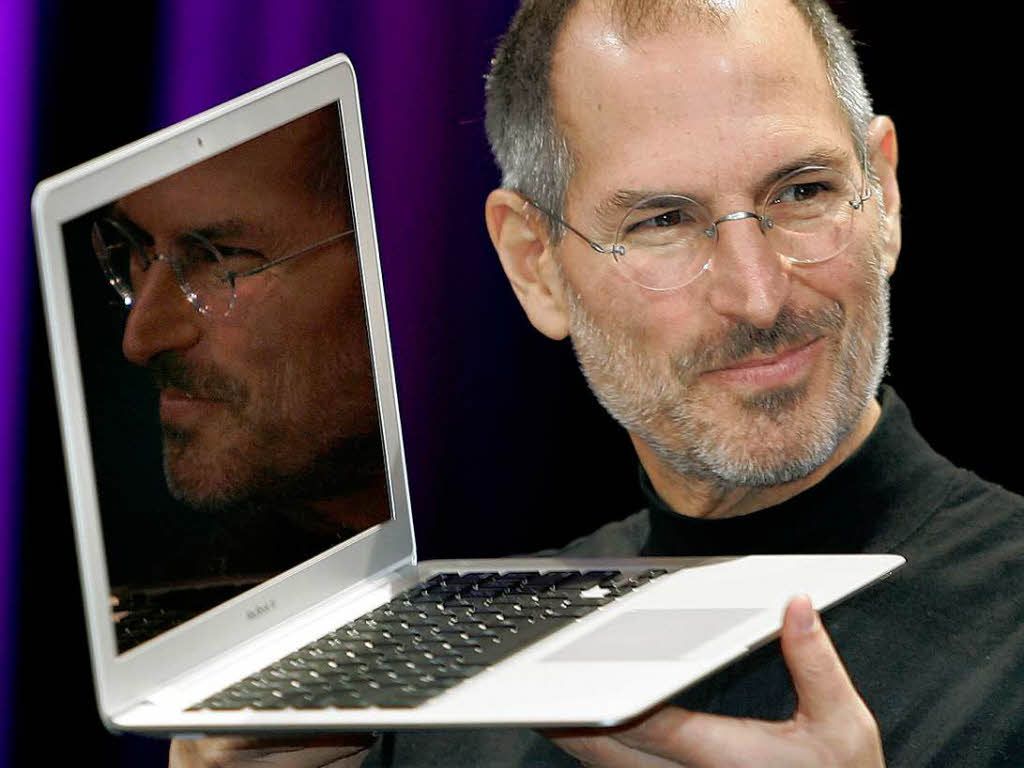
Steve Jobs is about as iconic and complex a figure as the tech world has ever seen, so it’s no surprise his life story has been so quickly swept up into Hollywood biopic fodder.
Walter Isaacson’s 2011 Jobs biography was a New York Times Bestseller, capturing a distinct cultural moment. It was hard to go a day in late 2011 and 2012 without glancing at Jobs’ round-rimmed glasses staring back at you from a stark white book cover. Last summer, a group of Jobs disciples even started an Indiegogo campaign to erect a giant statue of Jobs to tower over Silicon Valley like the Titan of Braavos from “Game of Thrones.”
When a larger-than-life personality embodies the zeitgeist as Jobs personified the modern tech boom, the film industry has a penchant for rushing biopics to the screen. Oliver Stone’s “W.” comes to mind: A serviceable portrayal of President George W. Bush hurried into theaters in time for the 2008 election and forgotten just as quickly. In the scramble to write, shoot, edit and release the film, Stone never figured out what he wanted to say.
The same was true of “Jobs,” Hollywood’s first crack at the Apple CEO’s storied life. The 2013 film, starring Ashton Kutcher as Jobs and Josh Gad as Steve Wozniak, was received about as well as most expected when Kelso from “That ‘70s Show” was cast. Nothing against Kutcher (I’ll always have a soft spot for “The Butterfly Effect”); he gave it his all, mustering up as much of Jobs’ infectious passion and uncompromising business vision as he could manage. Sadly, the film around him played like a sappy Lifetime movie tour that stopped at all the major landmarks in Jobs’ life but never went inside.
The second Jobs biopic—from Isaacon’s biography and adapted for the screen by “The West Wing” and “The Social Network” screenwriter Aaron Sorkin—is the one we’ve been waiting for. The one both the entertainment and tech worlds have anticipated as the movie Jobs truly deserves, at least until multiple casting and director dropouts, dysfunction and pulled funding sent the project into limbo.
Maybe Sorkin’s Jobs biopic is the real thing, the one that’ll join the likes of “Amadeus,” “Gandhi” and “Raging Bull” as films that not only did justice to their source material, but brought their subjects to life in a way that changed the audience’s perception of who the person was.
To do that, a film like this should only be made under the ideal circumstances. Not sooner.
Sorkin’s film is not a traditional biopic. It’s three scenes, all playing out in real time. According to him, the three scenes will each be 30 minutes long and take place right before three major Apple product launches: the original Macintosh computer in 1984, the NeXT Cube in 1990, and the original iPod in 2001.
“This is the first time I’ve felt, at the end of a script, like I wrote exactly the movie I wanted to write when I started,” Sorkin said in an interview last November. “I got to the end and it managed to get from my head to the piece of paper intact.”
A narrative as ambitious as the one Sorkin penned demands a star who can handle not only the close-up portrayal of a man like Jobs, but the weight of an entire film that lingers on his most vulnerable, intimate moments. We’re talking Daniel Day-Lewis in “My Left Foot.”
First Leonardo DiCaprio circled the project. Leo is no stranger to inhabiting polarizing figures, playing Howard Hughes in Martin Scorsese’s “The Aviator” and J. Edgar Hoover in Clint Eastwood’s “J. Edgar.” Leo bowed out, instead reportedly choosing to take a long break from acting after his next film.
Then Fight Club and The Social Network director David Fincher signed on and off in short order, reportedly over money and creative control issues. Things looked to be back on track when Danny Boyle (of “Slumdog Millionaire”) stepped in to direct and Fincher’s first choice for the lead, Christian Bale, was in talks for the role.
Bale is about as hardcore a method actor as there is, next to maybe Day-Lewis. If anyone could disappear into the character of Jobs, it’s Bale. But according to The Hollywood Reporter, “Bale, after much deliberation and conflicting feelings, came to the conclusion he was not right for the part and decided to withdraw.”
That says something. You can’t just plug anybody into this role. There may be an actor out there right for Steve Jobs, but Sorkin and Boyle haven’t found him yet.
Once Bale dropped out, Sony Pictures put the project in turnaround, and it will now be shopped to other studios. That’s not necessarily a bad thing. As much as I would’ve loved to see Seth Rogen take a Jonah Hill-like dramatic turn to play Steve Wozniak, this most likely means the biopic will be in limbo for a while.
Update 11/24: …or not. According to The Hollywood Reporter, Universal Pictures has picked up Sorkin’s Jobs movie for approximately US$30 million, with Danny Boyle still signed on to direct and Michael Fassbender attached to star. As we’ve seen with this project, though, “attached” does not mean committed. We’ve still got a long way to go before this biopic hits the screen.
The Hollywood culture of memorializing and commercializing someone’s life within years of their passing isn’t going to change, but the film now has some leeway to wait for the right circumstances. Jobs is too sensational a figure for the movie to stay on the shelf too long. It’ll get made.
Now though, rather than casting an actor who isn’t right and forcing the movie into public consciousness, the biopic has a chance, at least, of doing Steve Jobs justice.






